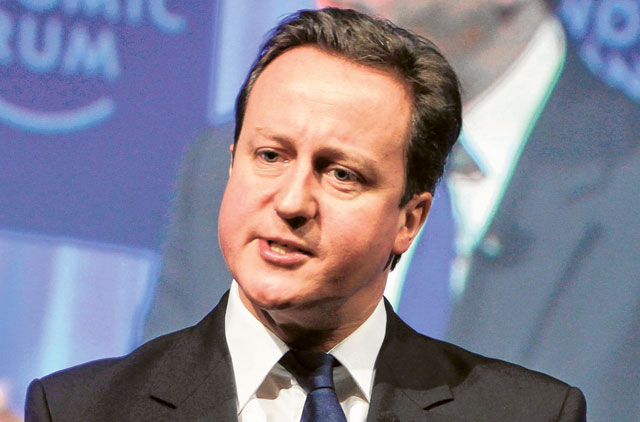Davos: Major trading powers agreed on Friday to push for an outline deal in decade-old trade talks by July as world leaders appealed for all nations to make concessions or risk losing the opportunity for years.
European Union Trade Commissioner Karel De Gucht said the ministers from seven key economies had also agreed to instruct officials to negotiate a deal in the Doha round across the board and leave the trade-offs for ministers to tackle to a minimum.
"This is a very clear engagement that the end-game of the Doha round has now started and that everyone is going to do his utmost to reach an agreement," De Gucht told reporters.
"Everybody agreed we should try to do this for July," he said, after hosting dinner for ministers from Australia, Brazil, China, India, Japan and the United States at a mountaintop restaurant in the Swiss resort of Davos.
Earlier British Prime Minister David Cameron told the Davos World Economic Forum it was "frankly ridiculous" that the Doha round of world trade talks had so far limped on for a decade.
"We simply cannot spend another 10 years going round in circles," he said.
"...I call on every world leader to join me. We've got one last chance to get this right — 2011 is the make or break year."
Window of opportunity
Cameron spoke alongside German Chancellor Angela Merkel, Indonesian President Susilo Bambang Yudhoyono and World Trade Organisation chief Pascal Lamy.
Members of the WTO had already agreed to intensify the pace of negotiations after the G20 urged them to use 2011 as a window of opportunity to reach a deal.
Negotiators at WTO headquarters in Geneva, however, had been hoping that ministers in Davos would send a clear signal that they should now make the necessary compromises to reach a deal that can be sold to voters in all countries.
But a warning from the trade ministers of Brazil, India, China and South Africa ahead of the dinner underlined just how difficult compromise could be.
The four ministers said concessions already made by their emerging economies were not being matched by rich countries, who were increasing their demands.
They said that such demands jeopardised efforts to conclude the Doha round.
Chinese Commerce Minister Chen Deming told Reuters that negotiations should be based on what was largely agreed at an abortive meeting of ministers in 2008, and countries which wanted more should pay more — a reference to US demands for China and other emerging economies to open their markets further for US products.
A broader meeting of about 25 trade ministers plus Lamy was also set yesterday to review the negotiations that have already happened.
A report by trade experts presented at Friday's panel discussion recommended heads of government get personally involved in reaching a Doha trade deal and set themselves an end-year deadline to achieve it.
"What is already on offer is a package that would provide a global economic stimulus of hundreds of billions of dollars in new trade annually," the report's preface said.
"Everyone would gain."
The Doha round was launched in late 2001 to boost the world economy and help poor countries prosper through trade.
The wide-ranging and complex talks to open up markets for food, industrial goods and services have missed repeated deadlines and some negotiators say 2011 will go the same way, perhaps dooming the negotiations altogether.
US President Barack Obama showed little interest in a WTO deal in his first two years in office, mindful of his supporters in organised labour and their Democratic allies in Congress.
But in recent months the talks in Geneva have moved up a gear and some believe the necessary trade-offs are now possible.
"There seems to be a general acceptance that what is needed to bring Doha to a successful conclusion is for the major countries to bring a little bit more to the table," Australian Trade Minister Craig Emerson told Reuters.
Blocking agreement
Emerson said Australia, one of the keenest proponents of a deal, does not believe that it is the one blocking agreement, but would consider further concessions as part of a final push.
"If it's a matter of the demonstration of good faith and everyone bringing more to the table then Australia would be a willing participant in that," Emerson said.
Indonesian Trade Minister Mari Pangestu and Costa Rican Foreign Trade Minister Anabel Gonzalez also told Reuters their countries were willing to take part in the needed give and take.
"We have to all come home with a balanced package," Pangestu said.
"And a balanced package means you've given something but you've also gained something and there's got to be a net benefit there." In the end the deal will require bilateral agreement between the United States and China, the world's two biggest economies.
But it is much more complicated than that, with competitive exporters among the emerging economies wanting to boost South-South trade by opening markets as well.
The changing nature of world trade may also make it easier to open markets by cutting import duties, as global supply chains mean tariffs amount to a tax on your own business.













